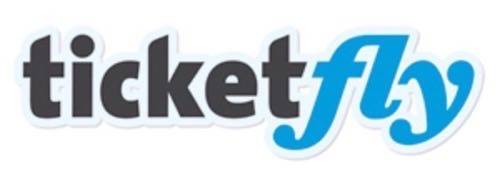Ticketfly, a startup that helps concert promoters leverage social media and sell tickets, announced earlier this week that it has raised $3 million in Series A funding from various firms and angels. Co-founded by Dan Teree and Andrew Dreskin, Ticketfly is – in a way – the rebirth of an earlier company, TicketWeb, which sold to Ticketmaster in 2000. After years of success, TicketWeb found itself unable to grow to its full potential, leading to the birth of a new venture, Ticketfly. Teree and Dreskin’s story serves as a lesson to startups of how acquisitions by large, slow moving companies can lead to frustrated entrepreneurs.

TicketWeb launched in 1996, becoming the first online ticketing service in the market. In May of 2000, Ticketmaster acquired the company for $35 million, which was six and a half times its revenue. With a solid return for its investors, TicketWeb’s sale made a lot of sense at the time, and for several years the company saw significant growth in its new home.
“There is a general agreement that Facebook and Twitter are winning platforms that are growing, that are huge already, that are very important and that you can’t ignore.”
– Dan Teree
With the growing popularity of social media over the course of the last decade, an opportunity to expand the features of the service to fulfill the needs of venues and promoters presented itself to TicketWeb. According to Teree, Ticketmaster, a large, slow-moving company, didn’t want to see a subsidiary product undermining its main service with better features, and thus funding for new projects at TicketWeb dried up.
In 2007, Teree left TicketWeb and joined forces with his former partner Dreskin, who had left the company shortly after the sale to Ticketmaster. A year later in 2008, the pair launched Ticketfly, building on the innovation they were unable to pursue while under Ticketmaster. Now the company has sniped 50 top venues from their former employers and just wrapped up a $3 million Series A round of funding to boot.
Had TicketWeb been allowed to grow under Ticketmaster, it “would have been way bigger and we would have been way farther along,” Teree told ReadWriteWeb. Instead, Ticketfly is now launching on a foundation of technical skills, management skills and relationships in the music industry built by its founders over the last ten years. “It’s allowed us to come out of the starting blocks far quicker than the average bear,” added Teree.
Looking back, Teree doesn’t regret the original sale to Ticketmaster because for a long time the relationship was good for TicketWeb. Since Ticketmaster has been too slow to adopt social media innovations, they are an easy target to compete with, Teree says. Ticketfly focuses on sales and marketing for venues and promoters within the music industry, and attempts to solve several problems these clients have.
Tradtional online ticketing platforms, like Ticketmaster, do not make it easy for promoters to get event information online in a timely and efficient manner. Ticketfly simplifies the process of promoting an event through web-based tools, whereas posting an event on Ticketmaster requires that the information pass through a Ticketmaster employee before it can go live. Ticketfly also places a strong emphasis on integrating with social media networks like Facebook and Twitter, eliminating the need for clients to re-enter their information in a handful of locations.

“Three years ago, you’d talk to a 45-year-old concert promoter in some city and you’d say ‘Oh, Facebook, Beebo, Myspace,’ – it’s always gonna be something new,” said Teree. “But now more than ever, there is a general agreement that Facebook and Twitter are winning platforms that are growing, that are huge already, that are very important and that you can’t ignore.” Ticketfly, he says, is designed to help promoters who are now beginning to realize that social media is critical to the success of their events.
With offices and employees in San Francisco, New York and Chicago, Ticketfly is able to meet face-to-face with many of their clients. But the benefits of the service aren’t only on the promoter’s end. Ticket buyers who use Ticketfly will pay 30-40% less in fees compared to Ticketmaster, and printing tickets at home comes at no added price. The site currently only supports the sale of concert tickets and Teree admits they aren’t shooting for the lowest fees. Ticketfly instead sees itself as a direct competitor of Ticketmaster, but the service’s plans to move beyond the music industry could place it head-to-head against popular online ticket vendor Eventbrite.
Investors in the company’s Series A funding include High Peaks Venture Partners and Contour Venture Partners, both based in New York. Angel investors include Roger Ehrenberg of Information Arbitrage Capital Partners, and Howard Lindzon, known for his leading investments in StockTwits and other well known startups.
While the acquisition of TicketWeb by Ticketmaster was not an outright negative experience, Ticketmaster did, however, miss out on an enormous opportunity to expand their efforts in social media marketing. Instead, Ticketfly’s founders left the company, and decide to innovate all on their own.
Photo by Flickr user Hamed Saber.

















